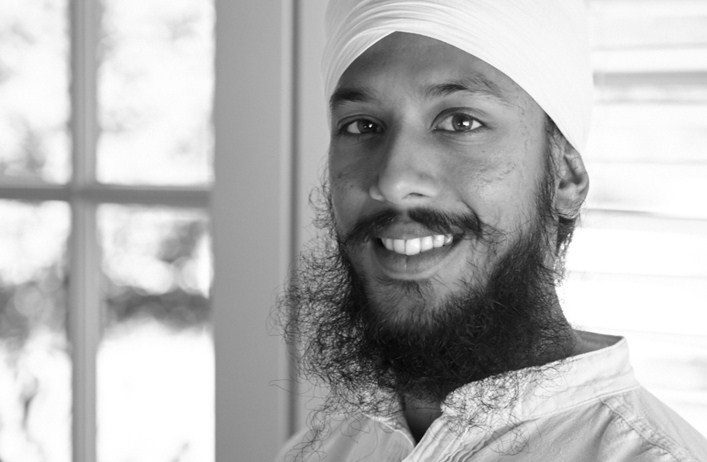by Nikhil Ramburn and Sat Bir Singh Khalsa, Ph.D
Reprinted from the April 2018 KRI Newsletter

Athletes get plenty of strength training and often do their stretching, so why would they need yoga? The postural, exercise and breath-regulation aspects of yoga provide a unique opportunity for core strength training by engaging the entire midsection in order to support one’s body weight. Other physical benefits include improved coordination, proprioception, flexibility, relaxation, deeper respiration, and decreased recovery time from heavy workouts. In addition, the meditative, mindfulness aspects of yoga provide substantive psychological benefits that include improved stress and emotion regulation, improved mindful awareness, enhanced cognition and concentration, and the ability to achieve a flow state. “Flow” refers to an optimal psychological state involving a complete absorption in the task or activity at hand – a state generally coveted by athletes because it is associated with strong positive emotions, including a deep experience of peace, harmony, and unity. Since self-regulation and performance enhancement are critical to athletic performance, it is not surprising that an increasing number of professional sports teams are implementing yoga as standard training practice.
Specific studies have been supportive of the benefits of yoga for athletes since the 1990s. An early study correlated the benefits of Transcendental Meditation with the improved pistol shooting performance of 30 undergraduate students. Similar improvements were observed in 25 elite shooters by a team of researchers at the Ullevål University Hospital in Oslo, Norway. The researchers observed a greater improvement in competition results among the group that received meditation training when compared to a control group. Another early study from the University of Nevada, observed significant improvements in the running performance of high school long-distance runners after yoga exercises when compared to a control group of a “motivational shouting” exercise intervention.
Some studies have focused on specific physiological benefits that underlie the global improvements with yoga, such as a 2004 study, which was published in the Journal of Strength and Conditioning Research. The researchers observed the effects of a single yoga set on muscle soreness. 24 yoga-trained individuals were compared to a control group of 12 non-yoga-trained volunteers. All participants were female, and the researchers observed that both yoga training and the single yoga session appeared to attenuate peak muscle soreness after a session of eccentric exercise. These findings have significant implications for facilitating faster recovery from muscle soreness in athletes. A 2016 study published in the International Journal of Yoga examined the impact of 10 weeks of yoga on the flexibility and balance of college athletes. 14 soccer players took part in bi-weekly yoga sessions, whereas the control group, which was comprised of baseball players, did not receive any additional yoga activity. The researchers observed significant gains in flexibility and balance in the yoga group whereas no significant changes were observed in the control group. Another landmark study evaluated the influence of yoga on the postural skills of the Italian short-track speed skating team. Eight men and seven women were given a total of 36 yoga sessions over eight weeks of high volume pre-season training. The researchers observed improvements in 11 of the 14 postural angles analyzed. In addition, no skaters suffered injury from the training volume, and coaches even reported improvements in the efficiency of skating technique.
Apart from the improvements in physical performance, yoga also confers the additional cognitive benefits of the meditative, mindfulness aspect of yoga. Applied sport psychology, in its efforts to enhance the competitive performance of athletes, has traditionally emphasized self-control and the elimination of negative thoughts and emotions. Recent evidence suggests, however, that this suppression may actually have the opposite effect of aggravating these thoughts and emotions. Rather, it is suggested that interventions that emphasize acceptance rather than direct change or suppression of cognitive and affective experiences may lead to enhanced athletic performance. A 2017 meta-analysis conducted by the Swiss Federal Institute of Sport and the University of Basel in Switzerland reviewed nine trials with 290 athletes of various disciplines including track athletes, cyclists, dart throwers, rugby players, and hockey players, to name a few. The athletes received a mindfulness intervention that varied from 4 weeks to over 2 years and researchers found that mindfulness scores consistently improved across the various sport disciplines. In addition, researchers concluded that mindfulness practice can be considered a performance-enhancing training approach in precision sports such as shooting and dart throwing.
A recent study published in the Journal of Sport Rehabilitation in 2017 also found sufficient evidence to support the use of mindfulness with student-athletes to aid in managing negative emotions and perceived stress. There is also preliminary evidence that mindfulness-based interventions may reduce injury in the same student-athlete populations. One of the theoretical models that may explain these observed benefits is the effect of mindfulness on rumination and sport-specific coping skills. Researchers from the Center of Research on Welfare, Health, and Sports in Sweden, observed that athletes who are more mindful in daily life tend to regulate their negative emotions and not engage in excessive rumination, which may in turn, improve their coping skills in a variety of sport-related challenges.
A preliminary investigation into the effect of mindfulness and flow in elite youth swimmers included a 10-week yoga intervention. Although no statistically significant changes in mindfulness and flow were identified, participants did report perceived improvements in those aspects. Moreover, qualitative data suggested that the yoga intervention resulted in positive improvements on a range of cognitive and physiological aspects. It is possible that study weaknesses of small sample size and yoga practice compliance may have contributed to the nonsignificant quantitative findings. Other studies on higher level psychological benefits have been conducted, such as a pilot project conducted at George Mason University in Virginia. It found that five weeks of hatha yoga sessions resulted in an increase of self-reported mindfulness and greater goal-directed energy when compared to a nonrandomized control group.
In summary, studies to date have demonstrated the beneficial effects of yoga on specific components of athletic performance including both physical and cognitive characteristics. Future research should address the previous limitations of small sample sizes, lack of longer-term studies, and in some cases the absence of randomization. Dose response characteristics and the relative contribution to efficacy of the different components of yoga such as physical postures, breathing techniques, and meditation are worthy of additional study. These future trials would further improve our knowledge of the underlying mechanisms of how yoga practice enhances the specific components of athletic performance, which of course has relevance for human performance in the general population.

Nikhil Rayburn grew up practicing yoga under mango trees in the tropics. He is a certified Kundalini Yoga teacher and has taught yoga to children and adults in Vermont, New Mexico, Connecticut, India, France, and Mauritius. He is a regular contributor to the Kundalini Research Institute newsletter and explores current yoga research.

Sat Bir Singh Khalsa, Ph.D. is the KRI Director of Research, Research Director for the Kripalu Center for Yoga & Health, and Assistant Professor of Medicine at Harvard Medical School. He has practiced a Kundalini Yoga lifestyle since 1973 and is a KRI certified Kundalini Yoga instructor. He has conducted research on yoga for insomnia, stress, anxiety disorders, and yoga in public schools. He is editor in chief of the International Journal of Yoga Therapy and The Principles and Practice of Yoga in Health Care and author of the Harvard Medical School ebook Your Brain on Yoga.
Teacher

KRI is a non-profit organization that holds the teachings of Yogi Bhajan and provides accessible and relevant resources to teachers and students of Kundalini Yoga.


 Français
Français Deutsch
Deutsch Italiano
Italiano Português
Português Español
Español 简体中文
简体中文
More Related Blogs